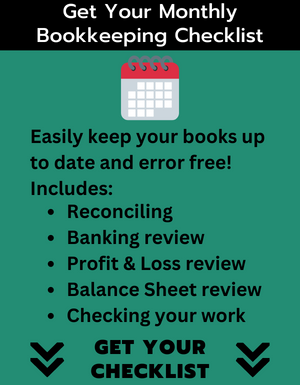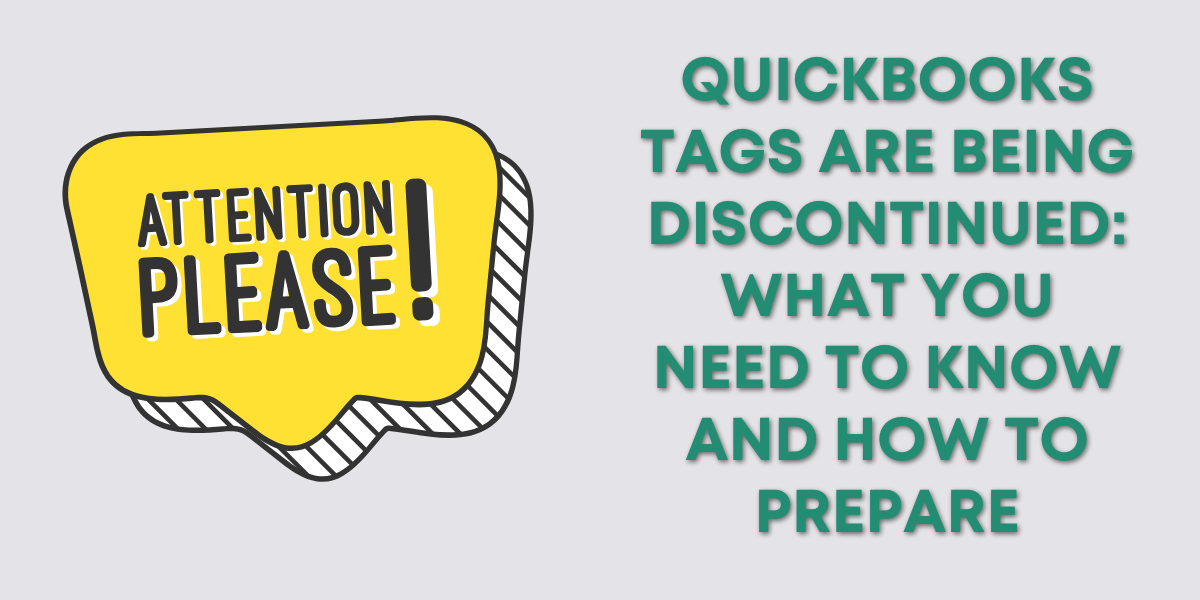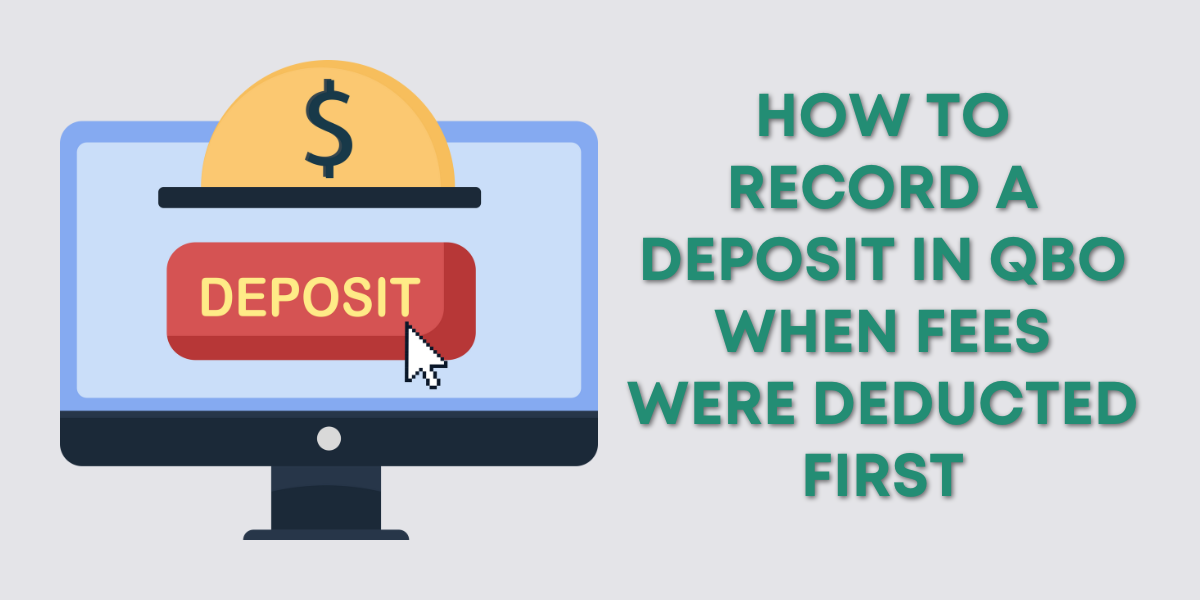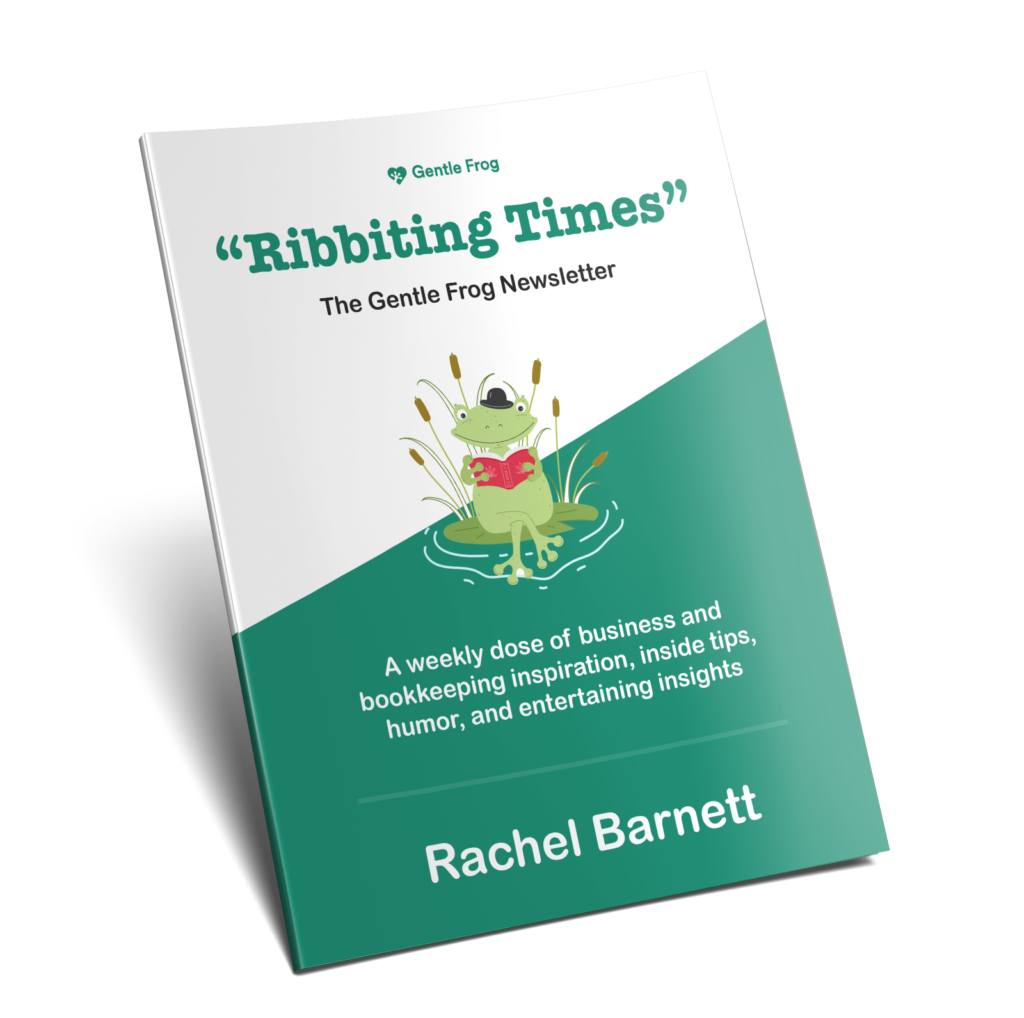You’re a responsible business owner. Part of that means controlling your business finances. Hiring a bookkeeper isn’t likely to break your bank, but it’s still another expense. And, hey, you’ve got a carefully-crafted Excel spreadsheet — or even a QuickBooks file! — that you handle well enough, right?
Unless you’re a bookkeeping savant, handling your books yourself (or in-house) is probably costing you money compared to outsourcing to a bookkeeper or, at least, getting some professional training. (Gasp!)
Consider the opportunity cost, effort, and time investment that goes into your DIY or in-house bookkeeping. Tracking receipts, recording transactions, reconciling accounts — all these tasks take away from your ability to run your business.
Even if you’ve handed these responsibilities to Matilda the office manager, that’s less time she has to perform her primary job functions (you know, the reason you hired her).
That’s not to say there’s anything wrong with DIY bookkeeping. After all, plenty of business owners handle their own books. However, bookkeeping is a skill; too little expertise and familiarity with it can lead to costly mistakes, oversights, and issues — not to mention complicate how much time you’re devoting to keeping your books.
If you’re such a business owner, consider hiring a bookkeeper to either handle your books for you, or teach you how to properly record, track, and manage your finances.
What Do Bookkeepers Do?
Bookkeepers are responsible for managing, recording, and organizing your business’s financial transactions.
They fulfill the responsibilities of:
- Collecting and recording transaction data
- Organizing and categorizing your receipts and expenses
- Maintaining accuracy between your books and bank account(s)
- Generating reports
- Invoicing customers and clients
- Paying vendors
- Managing payroll
- And more, depending on the specific bookkeeper and assigned responsibilities
Ultimately, a bookkeeper’s chief duty is to maintain accurate financial records so that, at any given time, you can assess your business’s financial strength.
It’s important to remember that bookkeepers aren’t necessarily accountants. Though the two fields intersect often enough, bookkeepers support your business more directly by ensuring its records are accurate. Accountants, on the other hand, tend to serve a more advisory role that informs you of the best financial decisions to make.
5 Reasons You Need a Bookkeeper
A bookkeeper is an expert. Any bookkeeper worth his or her salt has honed their skills and has experience with most of the situations you’d encounter on a day-by-day basis. In fact, many bookkeepers have likely seen — and resolved — issues that would confuse, frustrate, and befuddle someone in another line of work, or even a relatively seasoned DIYer.
Let’s compare a bookkeeper to a plumber. If a pipe bursts in your home, you could try to fix it yourself. You may even do a decent job. But what if the pipe burst for a reason that’s not immediately obvious to you? Chances are, the pipe will burst again some time in the future because you failed to recognize and fix the cause of the pipe bursting.
That’s not to mention the time you’d have to spend fixing the damn thing in the first place. You probably had to cancel plans (and yes, in this case, sitting on the couch watching TV is an acceptable plan) and may have even lost out on income if you had to call out from work.
Whether you need help with your bookkeeping or you just need to polish up your DIY skills, there are some very good reasons why you should still consider hiring a bookkeeper.
1. You’re spending too much time bookkeeping
Unless you’re a bookkeeper yourself, chances are bookkeeping isn’t your primary responsibility — or, at least, it shouldn’t be.
All the time you spend collecting and organizing receipts, poring over bank statements, and verifying if you’ve sent out or paid an invoice is all time you could otherwise spend, you know… running your business.
By outsourcing this work to a dedicated bookkeeper, you’re freeing up time you could devote to marketing your business, perfecting your products or services, or enhancing your work-life balance.
Even if you’re adamant about doing your books yourself, bookkeeping training can help you speed up the process and improve your workflow.
2. You’re losing track of transactions and receipts
How do you keep track of receipts and business expenses? Do you shove them into a shoebox that won’t see the light of day until tax time? Or do you leave them in a pile on your desk and promise yourself you’ll “get to them later?”
Part of a bookkeeper’s duties is to create organization from chaos. Bookkeepers are experts at implementing systems to properly record and store your receipts, categorizing them based on the type of expense, and ensuring the data’s there if the IRS comes knockin’.
If you struggle with organizing and recording your transactions and receipts, consider speaking with a bookkeeper. You can choose to outsource this work to them, or pick their brain to learn how to best tackle receipt management — and throw that dusty old shoebox away in the process.
3. You’re overwhelmed by your financials
Numbers can get confusing quickly. Whether you’re still traumatized from high school calculus or simply don’t consider yourself a math aficionado, dealing with business finances is tough.
Like other DIYers, you’ve got to track:
- Credits and debits
- Invoices and accounts receivable
- Payroll
- Budgets
- Taxes
- Personal and business expenses
- Rent
- Inventory cost
Together, these financials can become overwhelming, especially if you’re not using dedicated bookkeeping software (or using it to its fullest potential).
Bookkeepers are intimately familiar with these sorts of transactions and can take over recording and managing your business’s financials on your behalf. In addition, a skilled bookkeeper can train you on the best practices to record, manage, and interpret your financials, and how to input that data into a versatile bookkeeping app.
4. You need help planning for the future
One of the best reasons to record accurate financial data is to understand the financial standing of your business. It’s how you can assess whether it’s time to grow or pick up another employee, or scale back to avoid cash flow issues.
Skilled bookkeepers notice and identify trends that can help you capitalize on — or avoid — a situation, season, or event. For example, if businesses within your industry typically see an increase in sales during autumn but yours has not, a bookkeeper can help figure out why, then recommend a solution.
Bookkeepers can also help you plan a budget — and stick to it. They’re sticklers for this sort of thing, ensuring your budget is both realistic and forward-looking, helping your business achieve short- and long-term goals.
If you’re handling your own books but still need a little help, a helpful bookkeeper can show you how to generate useful and detailed reports and teach you how to use them to budget and plan for the future.
5. You want to take your DIY bookkeeping to the next level
There are plenty of reasons to hire a bookkeeper, but here’s the kicker: You don’t need to outsource your bookkeeping if you don’t want to.
That’s right. To reiterate an earlier point, there’s nothing wrong with DIY bookkeeping. If you enjoy doing it and don’t feel as if it takes too much focus away from your other responsibilities, all the power to you.
But don’t overestimate your abilities, either. A professional bookkeeper is just that: Professional. They stay on top of recommended best practices, are keenly familiar with bookkeeping software and use it to its fullest potential, and have seen bookkeeping errors you’ve probably never even suspected possible.
In other words, a bookkeeper is an expert. Your bookkeeping methods might work for you and you may not have any issues handling your books yourself, but it’s not your primary area of expertise. For a bookkeeper, it is.
The right bookkeeper isn’t going to denigrate you for taking the DIY route. In all likelihood, they’ll celebrate it! Find one to work with who’ll make your bookkeeping processes less rough around the edges or double-check your work. Take a course or schedule an introductory meeting to confirm that what you’re doing is right, or to elevate your DIY bookkeeping to a higher level.
Should You Hire a Bookkeeper?
Whether you’re considering outsourcing to a bookkeeper or hiring one to boost your skills, remember that working with a bookkeeper is an investment. It’s an upfront expense, sure, but that expense saves you time and money over the long-term.
Ultimately, consider your circumstances. Are your books perplexing? Are you spending too much time trying to figure them out? Do you need a little bit of help sticking to your budget and figuring out how to grow your company?
If so, get in touch with a bookkeeper. The tips, advice, and guidance offered by a professional bookkeeper will more than likely pay off and get you on the right track (or help you stay that way).
Daniel Mattia is a freelance content writer and author. He’s written extensively about insurance, personal finance, and small business. Daniel’s past and current clients include RateGenius, The Zebra, Bestow, and others across a variety of industries.







2 Responses
I think having a bookkeeper teach a business owner how to record properly is a great idea. That way the business owner can do it on their own if they ever start to lose money. It all depends on the business owner’s needs though.
I appreciate your explanation of when to hire a bookkeeper. It makes a lot of sense to hire a bookkeeper when your financials are overwhelming. I think that hiring a professional bookkeeper can boost the productivity of your business.